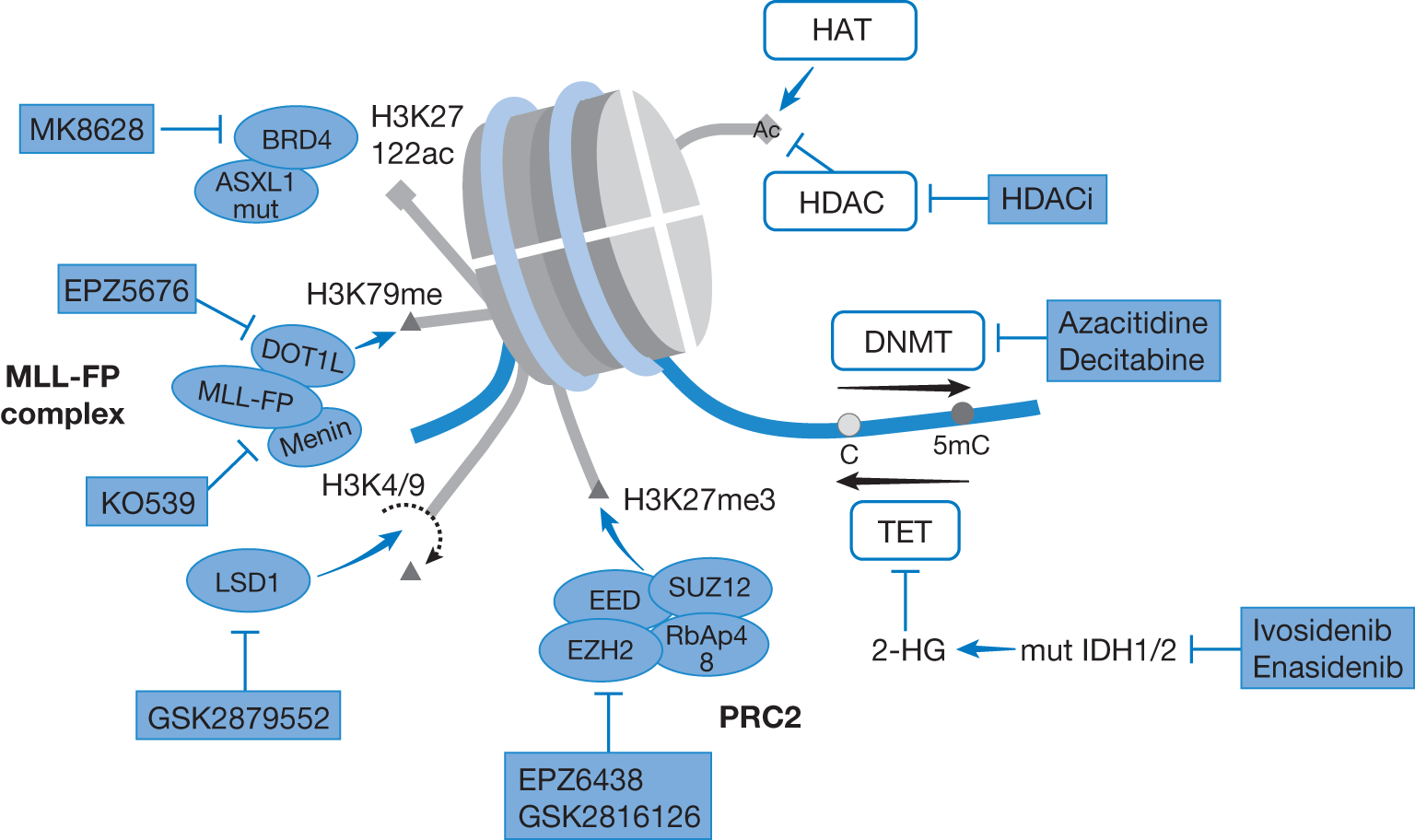Epigenetics Modifying Agents and the Mechanism of Action.

DNMT inhibitors:Azacitidine (5-azacytidine) and its analog decitabine (5-aza-2-deoxycytidine) are clinically available DNMT inhibitors. Both drugs are metabolized intracellularly and incorporated into DNA during replication and exert DNMT inhibition through covalent binding of DNMT to azacytosine. DNA demethylating effect is usually seen at lower drug concentration while higher doses may also induce direct cytotoxicity. TET dioxygenases require alpha-ketoglutarate for enzymatic conversion of methylcytosine to 5-hydroxymethylcytosine. Alpha-ketoglutarate is a product of enzymatic conversion of isocitrate by isocitrate dehydrogenase isoenzymes IDH1 and IDH2 localized in cytoplasm and mitochondria, respectively. Point mutations in IDH1 R132 and IDH2 R140 and R172 result in loss of normal enzymatic activity and accumulation of 2-hydroxyglutarate (2-HG). 2-HG is a competitive inhibitor of alpha-ketoglutarate–dependent dioxygenases such as TET and results in DNA hypermethylation. Ivosidenib and Enasidenib are selective inhibitors of mutant IDH1 and IDH2, respectively. Both have been recently approved for treatment of relapsed refractory AML. Histone acetylation: Acetylation and deacetylation of histone tails is an importation mechanism of gene expression control. These modifications are catalyzed by histone acetylases (HAT) and deacetylases (HDAC), respectively. Several HDAC inhibitors have been approved for treatment of lymphoid malignancies (Table 7.1). The efficacy of these agents in myeloid malignancies is not yet well-defined.
Histone methylation: EZH2 is a histone-lysine N-methyltransferase that catalyzes the addition of methyl group to H3K27. H3K27me is associated with transcriptional repression and heterochromatin formation. EZH2 is a catalytic component of the Polycomb Repressive Complex 2 (PRC2). EZH2 mutations, both gain and loss of function, have been identified in numerous hematologic malignancies and solid tumors. Of note, increased EZH2/PRC2 activity has been found in stem and progenitor cells. Thus, inhibition of EZH2 could potentially shut off the stem cell programs and promote differentiation. Phase 1/2 clinical trials suggested that EZH2 inhibition was well tolerated and produced antitumor activity in patients with refractory B-cell non-Hodgkin lymphoma and advanced solid tumors.